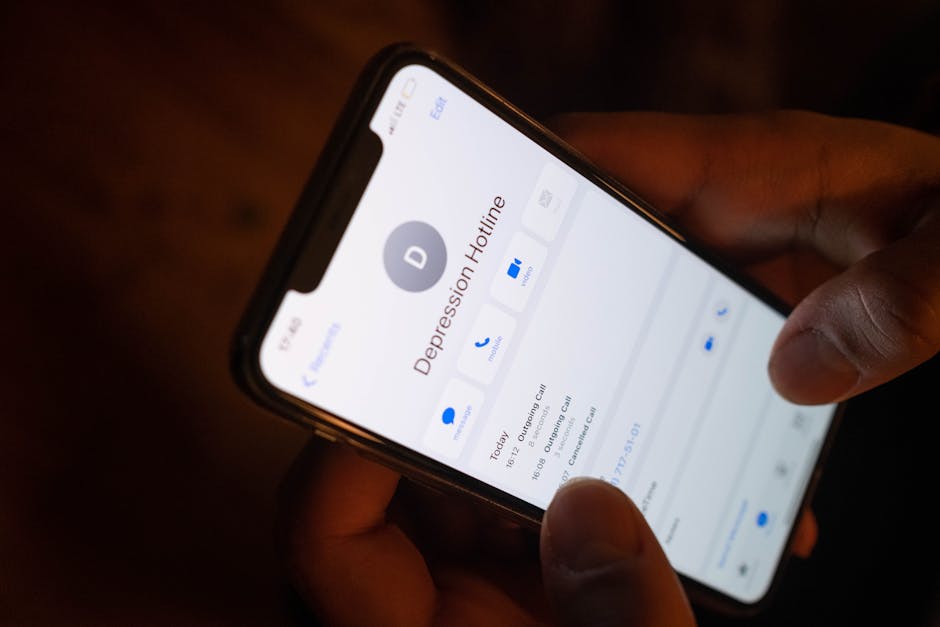
Navigating Your Path to Mental Wellness
Finding a therapist can feel overwhelming, but the process can be simplified with these key steps:
- Identify your needs: Consider what specific challenges you’re facing (anxiety, depression, relationship issues)
- Explore provider types: Psychologists, counselors, social workers, psychiatrists each offer different expertise
- Check credentials: Verify licensing and specializations in your areas of concern
- Consider practical factors: Location, cost, insurance coverage, session format (in-person vs. online)
- Evaluate compatibility: Schedule initial consultations to assess personal connection
Taking the first step toward therapy is often the hardest part of the journey. Whether you’re dealing with anxiety, relationship struggles, or simply seeking personal growth, connecting with the right mental health professional can be transformative.
The good news? You don’t have to steer this path alone. With thousands of licensed therapists in private practice across the country, finding support custom to your specific needs is more accessible than ever.
Why now is the perfect time to start your search:
- Mental health awareness has reduced stigma around seeking help
- Telehealth options have expanded access beyond geographic limitations
- Insurance coverage for therapy has improved significantly
- Specialized directories make matching with the right professional easier
As Dr. Susan Johnson, founder of Emotionally Focused Therapy, reminds us: “We know that love makes us vulnerable, but also that we are never as safe and strong as when we are sure we are loved.” The same applies to our relationship with ourselves—therapy offers a space to develop that inner security.
I’m Emmanuel Romero, a Licensed Marriage and Family Therapist who has helped countless individuals find a therapist that matches their unique needs through my work at Hoag Hospital, Irvine Unified School District, and my private practice, Mr. Therapist Counseling Services.

Why Therapy? Who Benefits and When to Seek Help
Therapy isn’t just for people facing major crises—it’s a powerful tool for anyone looking to improve their mental wellbeing, strengthen relationships, or foster personal growth. The evidence speaks for itself: research consistently shows that about 75% of people who begin therapy experience meaningful benefits.
At Mr. Therapist, we’ve witnessed remarkable changes across all walks of life. People struggling with anxiety and depression find relief through evidence-based strategies that not only manage symptoms but address underlying causes. Those carrying the weight of trauma find a safe haven where healing becomes possible. Individuals navigating life transitions like career changes, relocations, or relationship shifts gain clarity during uncertain times.
Many clients come to us simply seeking greater self-awareness—uncovering patterns that may be holding them back from living fully. Others focus on strengthening relationships by developing communication skills and emotional intelligence that transform how they connect with loved ones.
As the Anxiety and Depression Association of America notes, “Anxiety and co-occurring disorders are treatable, and the vast majority of people can be helped with professional care.” Yet many wait months or even years before reaching out, often wondering if their struggles “qualify” for therapy.
The truth? You don’t need to hit rock bottom to benefit from therapy. In fact, many clients tell me they wish they’d started sooner.
Red Flags That Signal It’s Time to Find a Therapist
How do you know when professional support might help? Your body and mind often send signals when something’s off balance. Sleep disturbances like persistent insomnia or oversleeping can be early warning signs. Mood changes that leave you feeling sad, irritable, or anxious more days than not deserve attention. When work or school performance begins to suffer because you can’t concentrate or complete tasks, it’s worth considering support.
Relationship conflicts that keep cycling through the same patterns might indicate deeper issues that therapy can help resolve. Significant changes in appetite or energy levels—whether you’re eating more or less, feeling constantly drained—often reflect emotional struggles. A noticeable loss of interest in activities that once brought joy, increased reliance on substances to cope, or intrusive thoughts that won’t quiet down are all valid reasons to find a therapist.
“Think of therapy as preventative care for your mental health,” explains Manny Romero of Mr. Therapist. “Just as you wouldn’t wait for a medical emergency before seeing a doctor, you don’t need to wait for a mental health crisis before talking to someone.”
How Therapy Helps Different Groups
The beauty of therapy lies in its adaptability to different needs and life stages:
For children (ages 6-10), emotional struggles often manifest through behavior rather than words. At Mr. Therapist, we create environments where kids can express themselves through play and art therapy, developing emotional vocabulary and coping skills in age-appropriate ways.
Teens face unique challenges as they form identities, steer peer relationships, and manage academic pressures. Our approach provides adolescents with confidential space to process these issues with someone who isn’t a parent or teacher—respecting their emerging independence while offering guidance.
Adults juggle complex responsibilities from career demands to relationship dynamics to existential questions. Our specialization in Emotionally Focused Therapy (EFT) helps identify and transform emotional patterns that may be causing distress or blocking fulfillment. Learn more about our EFT services here.
Couples find renewed connection through relationship counseling that improves communication and resolves conflicts. The Hold Me Tight program, based on EFT principles and offered at our practice, has been validated in over 20 outcome studies to significantly improve relationship satisfaction.
Families benefit from therapy that addresses dynamics between members, particularly during major transitions like divorce, remarriage, or when a child is struggling. Family sessions create space for each voice to be heard and understood, fostering healthier patterns of interaction.
Wherever you are in life’s journey, therapy offers a compass to steer challenges with greater resilience and self-compassion. The question isn’t whether you “need” therapy—it’s whether you might benefit from having a trained professional in your corner as you face life’s inevitable ups and downs.
Types of Mental Health Professionals & Therapy Formats
When you begin your search to find a therapist, you’ll encounter various types of mental health professionals. Understanding these differences can help you make a choice that feels right for your unique situation.

Psychiatrists (MD/DO) are medical doctors who specialize in mental health. They’re uniquely qualified to prescribe medications and diagnose complex conditions. If you’re struggling with symptoms that might benefit from medication alongside talk therapy, a psychiatrist might be your best first step.
Psychologists (PhD/PsyD) bring doctoral-level training to the therapy room. While they can’t prescribe medication in most states, they excel at psychological testing and evidence-based therapies. Many clients appreciate their deep understanding of human behavior and scientific approaches to healing.
Licensed Clinical Social Workers (LCSW) wear two important hats – they provide therapy while also helping connect you with community resources that support your overall wellbeing. Their training emphasizes how your environment affects your mental health, making them excellent advocates.
Licensed Marriage and Family Therapists (LMFT) – like myself, Manny Romero at Mr. Therapist – specialize in relationship dynamics. We work with couples, families, and individuals, always keeping in mind how relationships shape our emotional lives. If you’re struggling with communication, family conflicts, or patterns in relationships, an LMFT might be particularly helpful.
Licensed Professional Counselors (LPC/LMHC) offer master’s-level expertise across a wide range of concerns. Their flexible approach makes them great generalists who can help with everything from anxiety to career transitions.
Comparing Therapy Modalities
Think of therapy approaches like different tools in a toolbox – each works best for specific situations:
Cognitive Behavioral Therapy (CBT) helps you identify and change unhelpful thought patterns. It’s like learning to be your own detective, spotting thoughts that aren’t serving you well and replacing them with more helpful ones. CBT has strong research backing for anxiety, depression, and phobias.
Dialectical Behavior Therapy (DBT) teaches concrete skills for managing intense emotions and improving relationships. It combines acceptance (“these feelings are real”) with change (“I can learn to handle them differently”). DBT works wonders for people struggling with emotional regulation or self-harm behaviors.
Emotionally Focused Therapy (EFT) is our specialty at Mr. Therapist. Based on attachment theory, EFT helps you understand and transform emotional patterns. “I often tell clients that emotions aren’t the problem – they’re actually powerful tools for healing,” I explain to my clients. “EFT helps you access these tools.” This approach works beautifully for couples, individuals with relationship concerns, and those healing from trauma.
Eye Movement Desensitization and Reprocessing (EMDR) uses bilateral stimulation (often eye movements) to help process traumatic memories. It can feel a bit unusual at first, but many clients with PTSD find it remarkably effective when other approaches haven’t helped.
Acceptance and Commitment Therapy (ACT) blends mindfulness with values-based action. Rather than fighting difficult thoughts and feelings, you learn to make room for them while moving toward what matters most to you. ACT helps with everything from chronic pain to anxiety and depression.
For more information about our EFT services, visit Mr. Therapist’s Emotionally Focused Individual Therapy page.
Emerging Options: Online & Mobile Support
The therapy world has expanded in exciting ways thanks to technology:
Teletherapy brings the therapy room to your living room through secure video platforms. At Mr. Therapist, we’ve found that many clients actually open up more quickly in the comfort of their own space. Research confirms what we’ve seen in practice – teletherapy can be just as effective as in-person sessions for many concerns.
Therapy Apps can extend support between sessions. While they don’t replace the relationship with your therapist, apps for mindfulness, mood tracking, and coping skills can reinforce what you’re learning in therapy. Think of them as practice tools for your mental health skills.
Text-Based Therapy offers a different rhythm of support. Instead of weekly hour-long sessions, you might exchange messages with your therapist throughout the week. This works well for people who process thoughts better in writing or need more frequent, brief touchpoints.
At Mr. Therapist, we accept technology while keeping the human connection at the center of our work. Our secure telehealth platform ensures your privacy while offering the convenience that busy California lives often require. Whether you’re in San Clemente or anywhere else in California, we can meet you where you are – both literally and emotionally.
Find a Therapist: A Step-by-Step Roadmap
Taking that first step to find a therapist can feel like navigating unfamiliar territory. But don’t worry—you don’t need to figure it out alone. Here’s your friendly roadmap to guide you through the process:
Start by getting clear about what you’re hoping to achieve. Are you dealing with anxiety that keeps you up at night? Looking to improve communication with your partner? Understanding your goals will help you find someone with the right expertise.
Next, check what your insurance covers. A quick call to your provider or a visit to their website can save you significant money and narrow your options. If you’re on a tight budget, don’t let that stop you—many therapists offer sliding scale fees based on income.
“The therapeutic relationship is one of the strongest predictors of successful outcomes,” shares Manny Romero of Mr. Therapist. “It’s worth taking the time to find someone you connect with, someone who feels like the right fit.”
Consider what matters to you in a therapist. Would you prefer someone of a specific gender or cultural background? Are you looking for evening appointments? In-person sessions or the convenience of virtual meetings? These preferences aren’t superficial—they can make the difference between therapy that feels comfortable and therapy you might avoid.
When you’re ready to start your search, gather recommendations from trusted sources and use online directories to create a short list of potential matches. Always verify that they’re licensed in your state—this isn’t just a formality, it’s your assurance of proper training and ethical standards.
Many therapists offer brief phone consultations at no charge. Use these conversations to ask about their approach to your specific concerns and get a feel for how they work. Trust your instincts about whether you feel understood and respected.
Find a Therapist Near Me: Using Directories & Insurance
When you’re searching locally to find a therapist, several resources can make your journey smoother and more efficient.
Your insurance company’s website or app is often the best starting point. Most allow you to filter therapists by specialty, location, and whether they’re accepting new patients. Pro tip: Always call to verify they still accept your specific insurance plan, as directories can be outdated.
Professional associations offer some of the most reliable directories around. The Anxiety and Depression Association of America lists specialists with expertise in anxiety disorders, while Psychology Today’s comprehensive directory lets you filter by numerous criteria including therapeutic approach, issues treated, and payment options. GoodTherapy maintains strict standards, requiring all listed therapists to have proper education and licensing.
Don’t overlook community resources. Local mental health centers, university counseling departments, and county mental health services often provide quality care at reduced rates. These can be lifesavers if you’re facing long wait lists with private practitioners.
When navigating insurance, understand the difference between in-network providers (where you’ll likely pay less out-of-pocket) and out-of-network benefits (which may offer partial reimbursement). Ask about your deductible, copay, and any session limits before committing.
For clients concerned about affordability, Mr. Therapist offers helpful information about Affordable Therapy Solutions that can make quality mental healthcare accessible regardless of budget constraints.
Online Tools to Find a Therapist Fast
When you need support sooner rather than later, online platforms can dramatically speed up your search to find a therapist. These digital tools have transformed the landscape of mental healthcare access.
Many reputable online therapy platforms can match you with a licensed therapist within days rather than the weeks or months you might wait for an in-person appointment. These services offer flexibility in how you communicate—video sessions for face-to-face connection, phone calls when you’re on the go, or text-based therapy for those who express themselves better in writing.
“Online therapy has dramatically expanded access,” explains Manny Romero. “We now serve clients throughout California who previously couldn’t access specialized services like Emotionally Focused Therapy due to geographic limitations.”
Innovative matching services help connect clients with therapists who accept their insurance, often saving substantial money on sessions. These platforms handle the administrative hassle of insurance verification and billing, removing barriers that might otherwise prevent people from seeking help.
If you choose the telehealth route, keep a few important considerations in mind. Ensure the platform you use is HIPAA-compliant to protect your privacy. Check that your therapist is licensed in your state, as licensing requirements for telehealth vary by location. And make sure you have reliable internet connectivity and a private space where you can speak freely during sessions.
While technology has made finding therapy more convenient, the human connection remains at the heart of effective treatment. At Mr. Therapist, we accept technology while maintaining the personal touch that makes therapy transformative.
Choosing the Right Fit: Questions, Credentials, Culture & Cost
Finding a therapist is just the first step—finding the right therapist for you is what truly matters. It’s a bit like dating—the connection needs to feel right for the relationship to flourish.

When I meet with new clients at Mr. Therapist, I always encourage them to trust their instincts about our potential fit. That feeling of being understood is something you can’t fake, and it’s essential for therapy to work.
Before scheduling your first session, take some time to check a therapist’s credentials and expertise. You can easily verify their license through your state’s licensing board—a step that ensures you’re working with a qualified professional. Don’t hesitate to ask about their experience with your specific concerns, whether that’s anxiety, relationship issues, or life transitions. Their therapeutic approach matters too—at Mr. Therapist, we use Emotionally Focused Therapy because of its proven effectiveness, but different approaches work better for different people.
Cultural competence has become increasingly important in therapy, and for good reason. Your therapist doesn’t need to share your exact background, but they should understand how your cultural identity, sexual orientation, or unique life experiences shape your perspective. Many therapists now highlight their experience working with specific communities—whether LGBTQ+, BIPOC, or other groups. During your initial consultation, ask about their training and experience in cultural sensitivity. A good therapist will welcome these questions rather than becoming defensive.
The practical side of therapy matters too. Consider the location of their office (is it easily accessible?), their available session times (do they offer evenings or weekends?), and their cancellation policies (life happens—what happens if you need to reschedule?). These practical elements can make the difference between therapy being sustainable or becoming another source of stress.
Let’s talk money, because therapy is an investment in your wellbeing. Be upfront about asking about session fees and payment methods. If you’re using insurance, verify that they accept your specific plan and understand how they handle filing claims. Many therapists, including us at Mr. Therapist, offer sliding scale fees for clients facing financial constraints. And remember that most therapy is eligible for HSA/FSA funds, which can make it more affordable.
In-Person vs. Online Therapy Comparison
| Feature | In-Person Therapy | Online Therapy |
|---|---|---|
| Connection | May feel more personal | Convenient, no travel time |
| Privacy | Private office setting | Requires private space at home |
| Accessibility | Limited by location | Available anywhere with internet |
| Body language | Therapist can observe fully | Limited to what’s visible on screen |
| Technical issues | None | Potential connectivity problems |
| Crisis management | More immediate support | May have limitations |
| Scheduling | Usually business hours | Often more flexible hours |
When you’re ready to find a therapist, prepare a few key questions for your initial consultation. Rather than feeling like you’re interrogating them, think of it as starting a conversation about how you might work together. Ask about their experience with your concerns, their therapy approach, how they measure progress, and what role you’ll play in your treatment. Understanding their policies on confidentiality, between-session communication, and what happens if therapy isn’t working for you creates clear expectations from the start.
At Mr. Therapist, we welcome these questions because they show you’re invested in finding the right fit. We believe transparency builds trust—and trust is the foundation of effective therapy.
Evaluating Progress and The Power to Switch
Once you’ve started therapy, it’s important to regularly check whether it’s working for you. Think of therapy as a journey with signposts along the way.
Working with your therapist to establish specific, measurable goals gives you concrete ways to track your progress. These goals might include reducing panic attacks, improving communication with your partner, or developing healthier boundaries with family members.
Good therapy involves regular check-ins about how the process itself is going. If something isn’t working, speak up! Skilled therapists welcome this feedback and may adjust their approach based on your needs. At Mr. Therapist, we build these check-ins into our sessions because we know that therapy works best when it’s collaborative.
How do you know if therapy is working? You might notice you’re gaining new insights about yourself or implementing new coping strategies in challenging situations. Perhaps you’re seeing small but meaningful changes in your daily life—sleeping better, arguing less with your spouse, or feeling more confident at work. Even when sessions are difficult or emotional, you should feel heard and understood.
Sometimes, despite everyone’s best efforts, the fit just isn’t right. It’s perfectly okay to switch therapists if:
– You consistently don’t feel heard or respected
– The therapist seems to impose their values rather than helping you explore your own
– You’ve made no progress despite giving it sufficient time (typically 6-8 sessions)
– There’s a concerning ethical breach or boundary violation
“Finding the right therapist sometimes takes more than one try,” I often tell clients at Mr. Therapist. “Think of it like finding the right running shoe—even a high-quality option might not fit your specific needs.”
The power to choose your therapist remains with you throughout the process. A therapeutic relationship, like any relationship, requires the right chemistry to thrive. Trust yourself to know when it’s working—and when it’s time to try someone new.
What to Expect: First Session, Ethical Care & Ongoing Relationship
Taking that first step to find a therapist is courageous. Knowing what happens next can ease those first-session butterflies and help you feel more confident about the journey ahead.

Your first therapy session is like the opening chapter of a book—it sets the stage but doesn’t tell the whole story. Typically, you’ll spend this time completing any remaining paperwork, discussing confidentiality (and its few legal limits), and sharing what brings you through the door. Your therapist will explain their approach and work with you to outline some initial goals.
“Many clients tell me they were surprised by how comfortable they felt after just a few minutes,” says Manny Romero of Mr. Therapist. “That first session is really about beginning to build trust and getting a feel for each other’s communication styles.”
This initial meeting is as much about you assessing the therapist as it is about them understanding you. It’s perfectly okay to notice how you feel in their presence—this is valuable information about whether you’ve found the right fit.
Ethical therapy always includes certain professional standards. Your therapist should clearly explain confidentiality protections and the rare situations where they’re legally required to break confidence (typically only when someone’s safety is at risk). They should maintain appropriate boundaries, obtain your informed consent before starting treatment, demonstrate cultural sensitivity, and use approaches backed by research.
What truly makes therapy work is something researchers call the “therapeutic alliance”—that special connection between you and your therapist. Studies consistently show this relationship is one of the strongest predictors of successful outcomes. A healthy alliance includes mutual trust, collaborative goal-setting, and a shared understanding of how therapy will progress. At Mr. Therapist, building this alliance starts from your very first contact with us.
First-Session Checklist to Ease Anxiety
Walking into that first appointment (or logging into that first video call) can feel like a big step. A little preparation can help calm those nerves.
Before heading to your session, make sure you’ve completed any paperwork the therapist sent in advance—this saves valuable session time for actual conversation. Have your insurance card and payment method ready, and jot down any medications you’re currently taking.
Many clients find it helpful to write down a few key concerns or goals they want to address. This isn’t a script you need to follow rigidly, but it can be a helpful reference if your mind goes blank (which is completely normal when discussing personal matters with someone new).
For in-person sessions, plan to arrive about 10-15 minutes early to give yourself time to find parking, locate the office, and take a few deep breaths. For telehealth appointments, test your technology beforehand and find a private, comfortable space where you won’t be interrupted.
“The most important thing to bring to your first session is an open mind,” advises Manny Romero. “The first session is about beginning a conversation, not solving everything at once. You don’t have to share your deepest thoughts immediately—therapy unfolds at your pace.”
Signs of a Healthy Therapeutic Relationship
As you continue working with your therapist, certain qualities indicate you’ve found a good match. In a healthy therapeutic relationship, you’ll feel genuinely heard and respected, even when discussing difficult topics. The therapist maintains clear professional boundaries while still being warm and authentic.
You know you’ve found the right therapist when sessions feel like a safe harbor where you can express yourself honestly without fear of judgment. A good therapist will challenge you in productive ways that help you grow, rather than making you feel criticized or diminished.
Look for a professional who’s humble enough to admit when they don’t know something and willing to find answers or resources for you. Over time, you should notice yourself developing new insights and skills that transfer to your daily life.
Effective therapists welcome feedback about what’s working and what isn’t in your sessions. They adjust their approach based on your needs rather than sticking rigidly to a single method. Perhaps most importantly, even when working through painful material, you should feel a sense of hope that change is possible.
“Therapy is a unique relationship,” explains Manny Romero. “It’s professional but deeply personal at the same time. The right match feels like someone who truly sees you, holds space for your struggles, and believes in your capacity to heal and grow.”
If these elements are missing after several sessions, it’s worth discussing your concerns directly with your therapist. Sometimes a simple conversation can transform the relationship. Other times, it might signal that a different provider would be a better fit—and that’s completely okay. Your journey to find a therapist might include a few stops along the way before you find your perfect match.
Alternatives, Support Groups & Crisis Resources
While one-on-one therapy offers tremendous value, it’s not the only path to better mental health. Many people find that a combination of resources creates the strongest support system.
Support groups can be life-changing, whether they’re led by professionals or peers who’ve walked similar paths. These groups create a sense of community that combats isolation and offers practical wisdom from those with lived experience. As one of our clients recently shared, “Hearing others voice the exact thoughts I’d been afraid to say out loud made me feel normal for the first time in years.”
Many support groups are free or cost just a fraction of individual therapy, making them accessible entry points for those new to mental health care. They can beautifully complement individual therapy or serve as a standalone resource during waiting periods.

The digital world has expanded our support options too. Online peer communities moderated by mental health professionals provide safe spaces to connect, while apps like Wisdo and Peanut link people facing similar challenges. Community organizations like NAMI (National Alliance on Mental Illness) offer both in-person and virtual programs nationwide.
For those who prefer self-directed learning, evidence-based workbooks, mindfulness apps like Headspace or Calm, and mental health podcasts can introduce powerful concepts and practices. While these tools work best alongside professional guidance, they provide valuable support between sessions.
Research from the Anxiety and Depression Association of America confirms what we see in practice: peer support significantly reduces isolation and provides practical coping strategies that complement professional treatment. Their webinar series offers expert insights on everything from managing panic attacks to supporting loved ones with anxiety.
For immediate concerns, crisis resources provide vital lifelines:
- 988 Suicide & Crisis Lifeline: Call or text 988 for trained counselors available 24/7
- Crisis Text Line: Text HOME to 741741 for text-based support
- Local emergency departments for situations requiring immediate intervention
At Mr. Therapist, we believe everyone deserves support during difficult moments, regardless of whether they’re currently in therapy.
Low-Cost Paths if You Can’t Find a Therapist Immediately
When traditional therapy feels out of reach due to cost, waitlists, or other barriers, several alternatives can bridge the gap.
Community mental health centers exist in most counties and offer sliding-scale fees based on what you can afford. They often have shorter wait times for initial assessments and provide both individual and group services. While you might work with different providers over time, these centers deliver evidence-based care that helps thousands of people each year.
“I started at my local community center when I couldn’t afford private practice rates,” explains Maria, a former client who later transitioned to our services. “The care I received there gave me the foundation I needed during a really dark time.”
University training clinics offer another excellent option. These clinics provide therapy from graduate students completing their clinical training under close supervision from licensed professionals. The supervision actually means you get two minds working on your concerns, often at rates 70-80% lower than private practice fees.
If you’re in an underserved area, Federally Qualified Health Centers (FQHCs) provide integrated health services including mental health care. These centers accept Medicaid and offer sliding-scale options for the uninsured.
For those comfortable with technology, several online therapy platforms offer financial aid programs that can significantly reduce costs. These services often connect you with a therapist much faster than traditional waitlists allow.
The Open-Path Collective works differently – you pay a one-time membership fee to access a network of therapists who’ve agreed to offer reduced rates (typically $30-60 per session instead of $100-200) to Open Path members.
At Mr. Therapist, we’re committed to helping everyone find a therapist who meets their needs, even when our practice isn’t the right fit financially or clinically. We maintain relationships with community resources throughout California and can provide referrals custom to your specific situation. Our Affordable Therapy Solutions page offers additional guidance for navigating the financial aspects of mental health care.
Seeking help – in whatever form works for your circumstances – is a sign of strength, not weakness. The path to mental wellness isn’t always straightforward, but you don’t have to walk it alone.
Frequently Asked Questions about How to Find a Therapist
What if there’s a long wait list?
The frustration of finding a therapist you like only to find they have a months-long waiting list is all too real. Many of my clients share this experience, especially when seeking specialists in high-demand areas.
If you’re facing this roadblock, don’t lose hope. There are several practical steps you can take while waiting:
First, ask to be placed on the therapist’s cancellation list. Last-minute openings happen more often than you might think, and being first in line for these spots can significantly reduce your wait time.
While waiting, explore what interim support is available. Many therapists can recommend support groups or self-help resources specific to your needs. As Manny Romero from Mr. Therapist often tells clients, “Don’t underestimate the value of self-help resources. Quality books, workbooks, and reputable online content can provide meaningful support during your waiting period.”
Consider expanding your search to include telehealth providers. Since they aren’t limited by geographic location, online therapists often have more availability than local in-person providers. Your insurance company may also help you find a therapist with current openings – it never hurts to ask.
University training clinics are another excellent option that many people overlook. These clinics offer therapy provided by supervised graduate students at significantly reduced rates, and they typically have shorter wait times.
Can therapy be truly effective online?
“Will it really work if we’re not in the same room?” This is perhaps the most common question I hear about online therapy, and the research has good news.
Studies increasingly show that online therapy can be just as effective as in-person therapy for many conditions. A revealing 2018 study in the Journal of Anxiety Disorders found that internet-delivered cognitive behavioral therapy produced outcomes equal to face-to-face treatment for several anxiety disorders.
Online therapy tends to work best when you have a private space for sessions, a reliable internet connection, and some comfort with technology. It’s particularly well-suited for talk therapy approaches and for people whose concerns don’t require physical assessment.
At Mr. Therapist, we’ve noticed something surprising – many clients actually prefer online sessions once they try them. They appreciate skipping the commute, the comfort of their own environment, and how the screen sometimes makes difficult conversations feel a bit safer.
That said, online therapy isn’t ideal for everyone. If you’re in immediate crisis or need a type of therapy that requires physical presence (like certain trauma therapies), in-person care might be better suited to your needs.
How do I use my HSA/FSA to lower costs?
One of the most underused ways to make therapy more affordable is through Health Savings Accounts (HSAs) and Flexible Spending Accounts (FSAs). These accounts allow you to set aside pre-tax dollars for medical expenses – including mental health care.
The good news is that therapy is generally considered a qualified medical expense for both HSAs and FSAs. This means you can use these tax-advantaged funds to pay for your sessions, effectively giving yourself a discount equal to your tax rate.

Some therapists directly accept HSA/FSA cards just like regular credit cards. For those who don’t, you can typically pay out-of-pocket and then submit receipts for reimbursement through your account portal. This applies to both traditional in-person therapy and online therapy through established platforms.
According to mental health experts, therapy sessions ranging from $70 to $100 per week are recognized as eligible expenses by most HSA/FSA providers. This can make a significant difference in the affordability of consistent care.
Just remember to keep detailed documentation of all your sessions and payments. While therapy is generally covered, having proper records will protect you in case of questions about your expenses.
At Mr. Therapist, we’re happy to provide any documentation you need to make the most of your HSA or FSA benefits. We believe that finances shouldn’t stand between you and the support you deserve.
Conclusion
Finding a therapist is a deeply personal journey that can lead to transformative growth and healing. At Mr. Therapist, we believe that everyone deserves access to quality mental health care that honors their unique experiences and needs.
Through our Emotionally Focused Therapy approach, we help clients throughout California transform difficult emotions from sources of distress into powerful tools for healing. Whether you’re struggling with anxiety, facing relationship challenges, or simply seeking greater self-understanding, therapy provides a safe space for exploration and personal growth.
As you begin your search for the right therapist, keep these essential points in mind:
The therapeutic relationship is the foundation of effective therapy—finding someone you feel comfortable with and trust is crucial. Research consistently shows that this connection is one of the strongest predictors of positive outcomes.
Different therapeutic approaches work better for different concerns. What helps someone overcome anxiety might differ from what supports healing from trauma. Take time to learn about various methods and consider what resonates with your situation.
Practical considerations truly matter in sustaining therapy. The most brilliant therapist won’t help if you can’t afford the sessions, reach their office, or fit appointments into your schedule. Be realistic about what will work for your life.
It’s perfectly okay—and sometimes necessary—to meet with more than one therapist before finding your match. Many people describe finding the right therapist as similar to finding a good friend; sometimes the chemistry is just right from the start.
Therapy is a meaningful investment in your wellbeing, with benefits that extend far beyond the therapy room. The skills and insights you gain often improve relationships, work performance, and your relationship with yourself for years to come.
As Manny Romero often reminds clients, “Therapy isn’t about fixing what’s broken—it’s about reconnecting with your inherent capacity for resilience and growth.”
We invite you to take that first courageous step toward healing. Whether you choose to work with us at Mr. Therapist or find another provider who better meets your specific needs, the journey toward better mental health begins with reaching out.
Ready to start your therapy journey with us? Book your first appointment today and begin your path to emotional resilience and healthier relationships. We’re here to walk alongside you as you find your inner strength and capacity for change.



